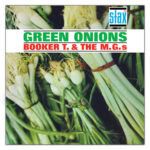In the twilight of Stax Records’ reign as a powerhouse in soul music, a final spark of creativity, grit, and emotional storytelling rose through the charts, offering one last reminder of the label’s enduring brilliance. “Woman to Woman,” Shirley Brown’s breakout 1974 single, became the final major hit of the classic Stax era. It climbed to No.1 on the Billboard R&B chart for a two-week run and reached No.22 on the Pop chart. Although it appeared on Stax’s newly launched Truth Records imprint, the single carried the unmistakable spirit of the label: conversational candor, gospel-infused strength, and a deep connection to real human experience.
Entering the charts in late September, the single gained momentum through the fall and soon distinguished itself as one of only four Top 10 R&B hits Stax generated that year. It ultimately sold more than a million copies and earned Shirley Brown a Grammy® nomination. Its success gave the remaining staff at 926 E. McLemore Ave. a rare moment of optimism during one of the most challenging periods in the company’s history.
Behind the single was a complex story of training, talent, and creative teamwork at a label pushing forward even as the ground shifted beneath it.
Shirley Brown’s journey to Stax began just across the Mississippi River. Born in West Memphis, Arkansas, in 1947, she grew up singing in church and performing in public from the time she was a child. Her break came early, when blues guitarist Albert King heard her while she was still in her teens and brought her into his touring revue. The years that followed became a unique form of apprenticeship, with Brown sharpening her skill on stages large and small, learning crowd control, vocal discipline, and an intuitive sense of timing.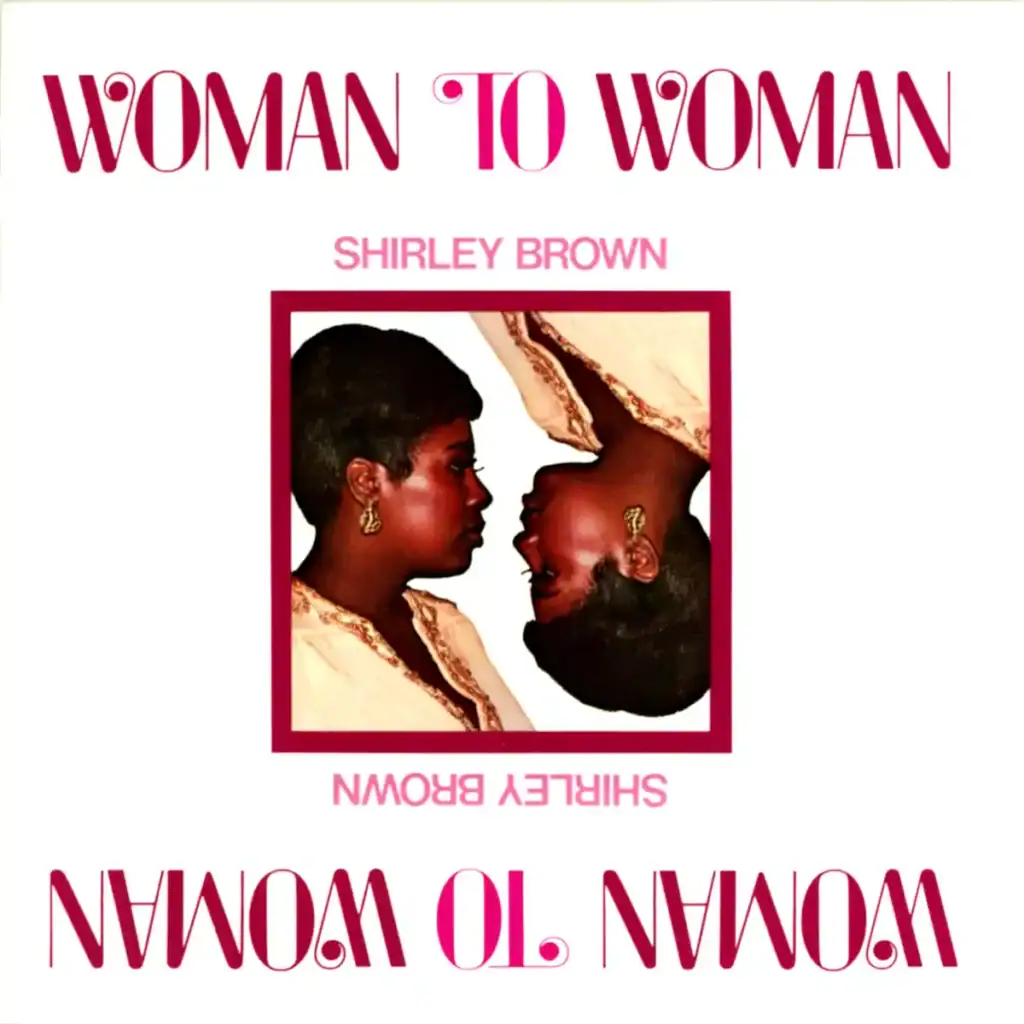
In the early 1970s, Brown joined Oliver Sain’s Revue in St. Louis, a well-known training ground for rising singers. Sain recognized the poise she had already developed and continued refining her approach in the studio. When these early efforts did not lead to broader recognition, King again intervened and encouraged her to audition for Stax. Her vocal strength during those first Memphis sessions immediately caught the attention of the label’s leadership. Jim Stewart, who had largely stepped back from production work, returned to the studio to help guide her early recordings. Joined by Al Jackson Jr., whose feel behind the drum kit had anchored so many Stax classics, Stewart worked to create an environment where Brown’s voice could shine. The sessions reunited several longtime Stax musicians and engineers, giving the work a natural connection to the label’s earlier years.
While Brown was preparing for her debut, three songwriters were working toward their own long-awaited breakthrough. James Banks, Henderson Thigpen, and Eddie Marion had quietly built a body of work in hopes of securing a place within Stax’s respected songwriting circle. Thigpen had moved from rural Mississippi to Memphis a decade earlier, following his interest in poetry and storytelling. Banks, whose twin brother had written several Stax hits, brought melodic sensibility and structural precision. Marion, working in the Stax demo studio, helped translate the team’s ideas into workable recordings.
Their inspiration for “Woman to Woman” grew from a conversation Thigpen overheard in his home involving a friend of the family and a tense romantic dispute. The immediacy of that exchange suggested a new song structure built around real dialogue. The team envisioned an opening spoken passage that would feel like the beginning of a phone call, instantly placing the listener inside the situation. They created a demo built around this idea and shared it with Inez Foxx, who decided the song did not suit her direction. The writers continued pushing the material, and the demo eventually reached the producers working with Shirley Brown. Her voice, presence, and interpretive instincts matched exactly what the team imagined. After they coached her through the nuances of the spoken introduction and the melodic sections, she recorded the final vocal with exceptional focus and clarity.
The release of the single came during an especially difficult moment for Stax. The company’s distribution partnership with CBS had become strained, and Stax executives believed their releases were not receiving adequate attention or shipment. With resources dwindling, the label needed a way to issue new music without losing potential income. The solution was to route “Woman to Woman” through Truth Records, a smaller Stax imprint whose releases were not tied to the CBS agreement. This allowed Stax to retain a greater share of the revenue, a crucial step during a period when each new release carried financial urgency.
Once the single reached the market in August 1974, it quickly became the strongest commercial response the company had seen in years. The momentum of the record offered a brief but meaningful lift during an otherwise unstable period. It reminded everyone involved that the creative instincts that defined Stax’s earlier success were still present, even as the company faced mounting challenges.
Brown’s debut album, also titled Woman to Woman, followed soon after. Although it was assembled under the pressures of a rapidly evolving business climate and featured contributions from multiple writers and producers, the album performed well. It reached the Top 20 on the R&B album chart and made an appearance on the pop chart. A second single, “It Ain’t No Fun,” also charted respectably and helped establish Brown as a compelling new voice in R&B.
The cultural life of “Woman to Woman” extended well beyond its initial release. The single prompted immediate response songs, including Barbara Mason’s “From His Woman to You,” which became a hit. Additional interpretations surfaced throughout the decade, and in 1978 Barbara Mandrell reimagined the song for a country audience. The 1990s brought renewed interest when Jewell, an artist signed to Death Row Records recorded a version for that label’s Murder Was the Case film soundtrack, introducing the concept to another generation of listeners.
Today, the spoken introduction of “Woman to Woman” remains one of the most recognizable openings in soul music. It continues to appear in memes, comedic sketches, and everyday conversation, often used to introduce moments of honesty or humor between two people.
As the last major hit released during the classic Stax era, “Woman to Woman” stands as a powerful reflection of what the label did best. It showcased Shirley Brown’s arrival as an extraordinary vocalist, elevated the work of three determined songwriters, and demonstrated the resilience of a studio team committed to making meaningful music despite the obstacles surrounding them. Half a century later, the single remains a masterclass in emotional directness and musical storytelling, unmistakably rooted in the legacy of Stax Records.
– Jared Boyd
Stax Number Ones ARCHIVE
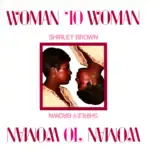

In The Rain – The Dramatics
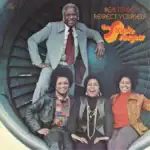
“I’ll Take You There” by The Staple Singers

Theme From Shaft
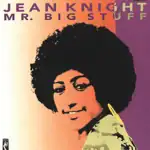
Mr. Big Stuff
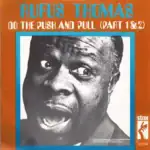
“(Do The) Push and Pull (Part 1)” by Rufus Thomas
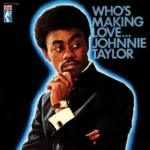
“Jody’s Got Your Girl and Gone” by Johnnie Taylor
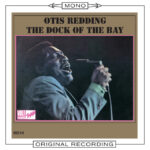
“(Sittin’ On) The Dock Of The Bay” by Otis Redding
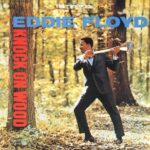
“Knock On Wood” by Eddie Floyd
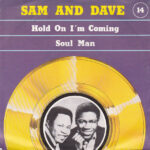
“Hold On, I’m Comin'” / “Soul Man” by Sam & Dave
